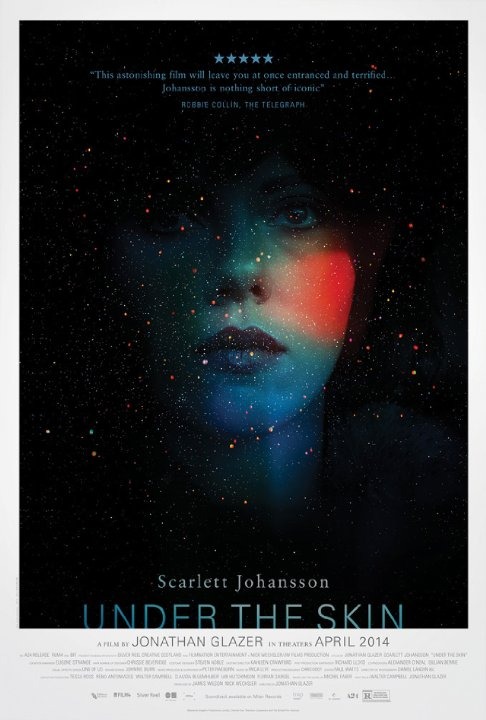
Most people would probably not turn down an invitation to go home with Scarlett Johansson. But most people would also not expect Scarlett Johansson to be an alien out to harvest human organs. That provocative notion is the exact premise of Jonathan Glazer’s, Under the Skin.
As could be inferred from the premise the best word to describe the film would be unsettling, and Glazer certainly deploys all the cinematic techniques in his arsenal to reach the desired ambiance. The visuals are bold and terrifying, using blaring lights and criss shadows that pain us to watch but find difficult to look away. He is also able to able to contrast that with more muted grey palettes that create foreboding landscapes. All of this is accompanied by one of the most purposeful scores of the year. The combination of a deep pulsating percussion and cacophonous screeches make sure that anxiety never leaves the room.
Despite being rather polished from a cinematic perspective, the film finds itself lacking in both pacing and structure. The first half of the films plays like a monster movie from the perspective of the monster, where we see Scarlett Johansson as “The Alien” lure unsuspecting men into their eviscerated deaths. Then, there is a tonal shift in the second half, where The Alien begins to sympathize with humans and drudges throughout England pondering her isolation and identity.
While this shift could have certainly made for an intriguing narrative, the execution failed to live up to its lofty goals. The first half of the films becomes very repetitive in its stalk and capture structure while the second half feels drawn out and aimless. Scarlett Johansson certainly flexes her acting chops in the role, by moving between a seductive killer and melancholy wanderer, but because the film is barely tethered to it plot, we never truly identify with her character or the overall story.
As one of the more challenging films of the year, Under the Skin is sure not going to whet every filmgoer’s appetite. Those who enjoy more experimental works such as David Lynch’s Eraserhead can look tol appreciate it’s bizarre and existential look on scifi horror. For the rest of us, it might just get under our skin.